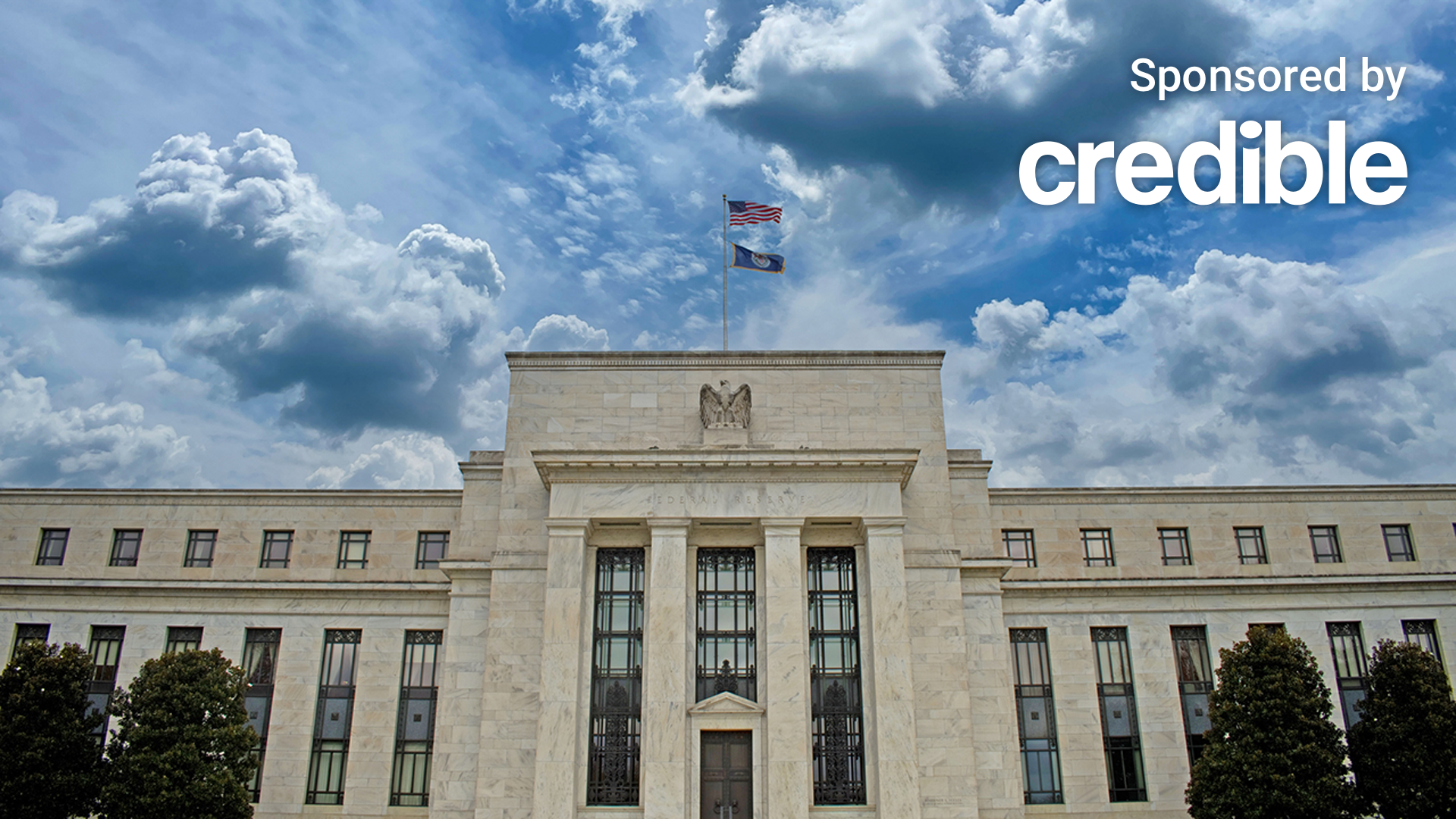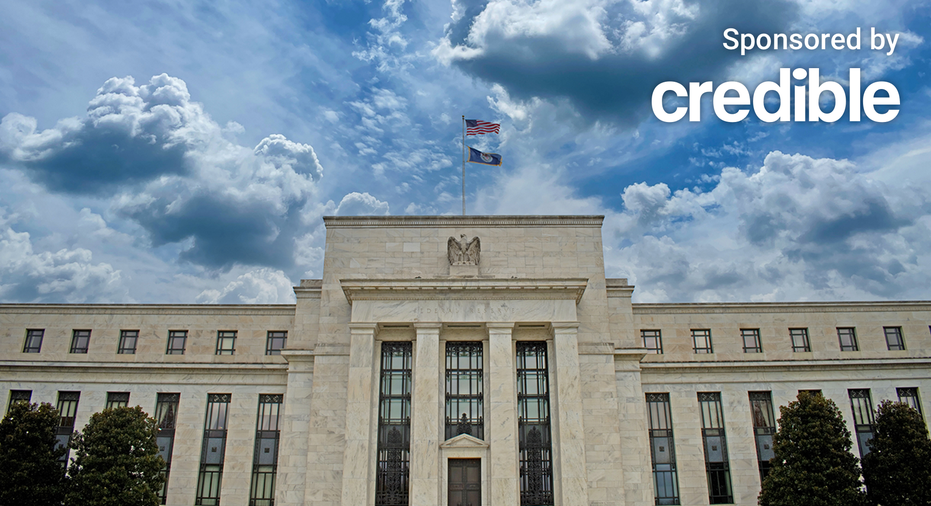Sticky inflation numbers for November show the Fed still has more work to do. (iStock)
Annual inflation increased to 2.7% in November, rising modestly above the 2.6% annual inflation rate of the previous month, according to the Consumer Price Index (CPI) released by the Bureau of Labor Statistics (BLS).
Inflation increased 0.3% on a monthly basis in November following four months of registering 0.2% monthly increases, according to BLS. The cost of housing was the most significant contributor to the monthly increase in November, accounting for nearly 40% of the monthly increase in all items. The price of food also increased by 0.4% in November. Energy prices rose 0.2% after being unchanged in October.
For now, the modest jump in inflation isn’t expected to dissuade the Federal Reserve from cutting interest rates later this month. However, it does signal that the central bank may face an uphill battle in getting inflation to the 2% target rate, which may impact rate cuts in the New Year, according to Jim Baird, chief investment officer with Plante Moran Financial Advisors.
“The real questions relate to what comes next,” Baird said in a statement. “The path for 2025 is less clear, but a course correction by the Fed toward holding rates a bit higher for a bit longer appears increasingly probable.”
Last month, the Fed announced a highly anticipated quarter-point cut, lowering interest rates to 4.5% to 4.75%. Although inflation has moderated substantially over the last two years from a peak of 7% to 2.6%, Fed Chair Jerome Powell said that the Fed remains committed to returning inflation to its 2% goal.
“Inflation continues to weigh down the wallets of the average American family, along with persistently high interest rates impacting everything from credit card spending to mortgage refinancing,” Gabe Abshire, CEO of Move Concierge, said in a statement. “While the Fed will likely cut interest rates again next week, it will still take time before this will bring household costs down. If consumer prices don’t start dipping down soon, and inflation remains stubborn, the Fed likely won’t substantially cut interest rates in the near term.
If you are struggling with high inflation, you could consider taking out a personal loan to pay down debt at a lower interest rate, reducing your monthly payments. Visit Credible to find your personalized interest rate without affecting your credit score.
THE FED JUST CUT INTEREST RATES AGAIN, THIS TIME BY A QUARTER OF A PERCENTAGE POINT
Mortgage rates dip
For housing, it’s more of the same. High mortgage rates and home prices have kept buyers away. Mortgage rates have decreased in sync with the Fed’s interest rate cut. Last week, according to Freddie Mac, they decreased to their lowest level in over a month.
The Fed is not likely to put the brakes on rate cuts, and that is good news for the mortgage market, according to Realtor.com Chief Economist Danielle Hale.
“In the Fed’s most recent September projections, members anticipated a policy rate of 3.4% by the end of 2025, but the typical investor has currently priced in just 3.9%–two fewer cuts by the end of 2025,” Hale said in a statement. “The upside of this positioning is that there may be room for market interest rates to move lower if the Fed’s projection winds up closer to reality.”
Hale said Realtor.com anticipates that market mortgage rates will decrease to 6.2% by the end of 2025, which, combined with other factors, should help buyers access housing.
“This will help sales eke out a small gain in 2025 of 1.5% even as price increases of 3.7% keep monthly payments relatively steady for homebuyers,” Hale said. “Steady monthly payments and income gains from a still robust economy and healthy labor market will help affordability improve marginally in the year ahead.”
If you’re looking to purchase a home in today’s market, you can explore your mortgage options by visiting Credible to compare rates and lenders in minutes.
THE U.S. ADDED 227,000 JOBS IN NOVEMBER, SETTING IN MOTION POTENTIAL FED RED CATS IN DECEMBER
Car insurance prices ease
Car insurance decreased again in November with the rate of annual increase dropping for a seventh straight month, according to today’s CPI report. The 12.7% annual rise was the smallest since September 2022.
Insurance costs are still high, but the signs are that the worst rate hikes may be over, according to Josh Damico, VP for insurance operations at Jerry. Damico said that repair costs are still rising fast, but most claims-related costs that have driven insurers’ rate increases, including vehicle prices and parts and equipment, have fallen or flatlined in recent months. Prices of used cars and trucks are down 16% from their early 2022 peak.
“Today’s data aligns with what we’re hearing from carriers,” Damico said. “They’re starting to see some relief in the cost of claims, so they’re pausing rate increases and reassessing the situation, and in some cases looking to roll back a bit of those recent rate hikes.”
If you are looking to save money on your car costs, you could consider changing your auto insurance provider to get a lower monthly rate. Visit Credible to shop around and find your personalized premium.
FHFA ANNOUNCES HIGHER MORTGAGE LOAN LIMITS FOR 2025
Have a finance-related question, but don’t know who to ask? Email The Credible Money Expert at [email protected] and your question might be answered by Credible in our Money Expert column.

 Blog Post1 week ago
Blog Post1 week ago
 Economics1 week ago
Economics1 week ago
 Finance1 week ago
Finance1 week ago
 Personal Finance1 week ago
Personal Finance1 week ago
 Economics1 week ago
Economics1 week ago
 Accounting1 week ago
Accounting1 week ago
 Personal Finance7 days ago
Personal Finance7 days ago
 Personal Finance1 week ago
Personal Finance1 week ago











